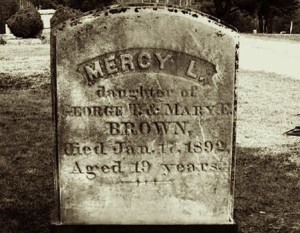 This time of year, around these parts, we tell scary stories. One of them is about Mercy Brown.
This time of year, around these parts, we tell scary stories. One of them is about Mercy Brown.
Mercy Brown was buried in Exeter, Rhode Island, January 1892. Two months later, she was exhumed. Her surviving loved ones dug her up, cut out her heart, burned it on a stone, mixed the ashes with water, and gave it to her brother to drink.
You see, Mercy’s family had died of consumption, one after the other, so townspeople theorized that one of them must be undead and had brought the curse of illness upon all. When they unearthed Mercy, her nineteen-year-old corpse appeared the least decomposed, having been preserved by the frozen New England winter. Her surviving relatives created the disturbing brew from the ashes of her heart and her brother drank it in the hope it would cure him and end the curse.
He died two months later because you don’t cure tuberculosis by drinking your dead sister’s heart.
Humans are so stupid. We’re capable of brilliance, of astonishing acts of heroism, and feats of greatness but we’re just as capable of random acts of idiocy, true lunacy, and pure hateful, selfish evil. King David knew this all too well when he said in 2 Samuel 24:14 – “I am in deep distress. Let us fall into the hands of the LORD, for his mercy is great; but do not let me fall into human hands.”
Without God’s spirit, humans don’t trend toward mercy. We’re just as likely to believe that the cure to our ills is to cut out Mercy’s heart.
We like to think we’re smarter now, and kinder, than village folk in 1892. When people have money, safe homes, and material security, we fool ourselves into thinking that we would be merciful to others even without those supports. But the truth is, when it goes against our self-interest, we often bury mercy six feet under in our souls and even if we unearth it, we’re just as likely to blame it for all our ills.
After spending a day healing and preaching repentance, Jesus chose to unwind at the home of Matthew, a tax collector. Tax collectors were traitors. They served Rome and robbed from their own people. Jesus was the Jewish Messiah and had every right to condemn those who betrayed His people. So, it confused the Pharisees that instead, He chose to share bread and lamb with them.
“And as Jesus reclined at table in the house, behold, many tax collectors and sinners came and were reclining with Jesus and his disciples. And when the Pharisees saw this, they said to his disciples, “Why does your teacher eat with tax collectors and sinners?” But when he heard it, he said, “Those who are well have no need of a physician, but those who are sick. Go and learn what this means, ‘I desire mercy, and not sacrifice.’ For I came not to call the righteous, but sinners.” Matthew 9:10-13 ESV
You see, mercy truly does provide a cure for our ills but not if we bury it or slice out its heart.
Jesus rankles the Pharisees again when His followers break one of the rules of the Sabbath by picking heads of grain to eat. (picking the grains would have constituted work, according to rabbinical law.) Jesus, again, exhumes mercy. “If you had known what these words mean, ‘I desire mercy, not sacrifice,’ you would not have condemned the innocent. For the Son of Man is Lord of the Sabbath.” Matthew 5:7-8
Jesus tells us that being a student of mercy is the prevention of and the cure for religious blindness, a serious ailment of the soul. Lack of mercy is the reason the Pharisees missed Jesus. Could it be the reason we continue to miss Him now? At the end of that story, the Pharisees refuse the cure and leave to plot the death of God. When I read that verse, it scared me. I understand mercy, don’t I? Or do I mistakenly blame it for my pain?
Jesus warned us to study mercy. Do I do that? Or do I only seek it when I’m feverish with what ails me and then crush it against the rock of my desperation? If being a student of mercy can keep me from going blind, if it can keep me from missing Jesus, if it keeps me from condemning the innocent, if it can prevent self-righteousness, if it makes me more like Christ, then I want mercy. But, too many times I exhume mercy only to cut out its heart.
James said, “Speak and act as those who are going to be judged by the law that gives freedom, because judgment without mercy will be shown to anyone who has not been merciful. Mercy triumphs over judgment.” James 2:13-14 This is the story that should frighten us today. Judgment without mercy will be shown to anyone who has not been merciful.
In this season, we love to tell stories of the unnatural and supernatural. Here is mine. It is unnatural for the human heart to embrace mercy. More likely, to destroy even those we love, in the name of self-preservation. It is through the supernatural, a relationship with the living God, that we transcend our natural desire to cut out mercy’s heart and, instead, become students of mercy, embodied by Jesus Christ.
Mercy rose from the grave. Mercy’s heart beats on. Mercy triumphs. If they exhume my body and cut out my heart, will they find a heart of mercy, still beating with the blood of Jesus? For His heart of mercy, loved ones, is the only cure for all that afflicts us.
A Rhode Island Story I Hope Will Truly Scare You https://t.co/6zgpTlH2k1 #MercyBrown #scarystories #amwriting
— Lori Roeleveld (@lorisroeleveld) October 30, 2015
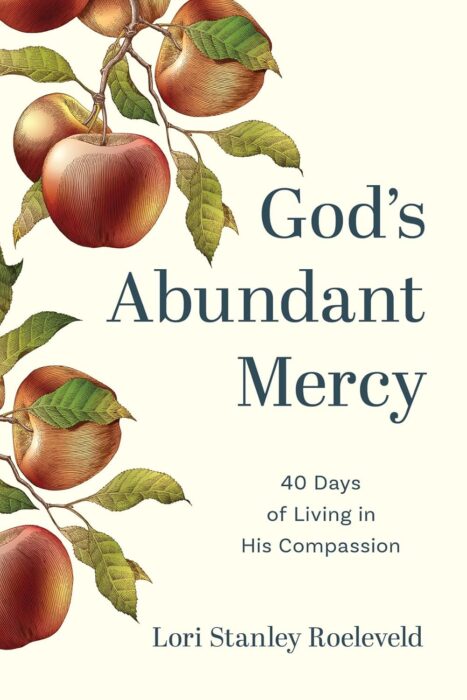
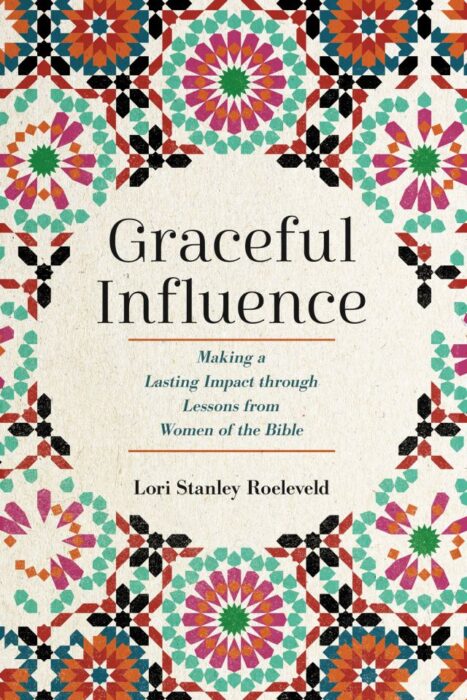
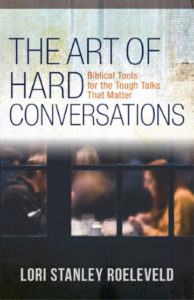
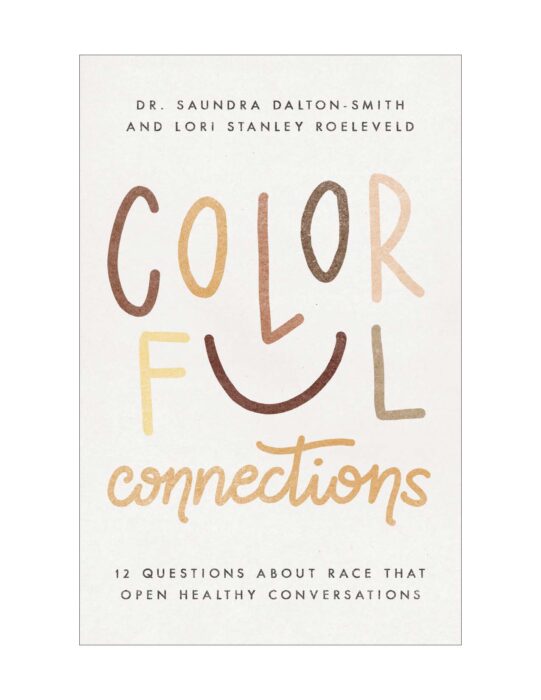







The Conversation
While the story is telling and horrifying, it is the scripture about David that has stuck in my mind, his preference to land in the hands of God not the hands of man. Thanks for the mercy-full reminder.
Well said, Lori R. May mercy reign.
James words, mercy triumphs over judgment, convict me, Lori. You are right – that is the scariest story of all. I depend on Jesus’ mercy and grace every day but I don’t always live it out in my response to others. Am I quick to judge others as lower than me – homeless, addicts…the list goes on? As usual, your words have made me search my heart. Thank you!
Good on you, Lori! Great connection with the day, and the times, and our true heart’s need.